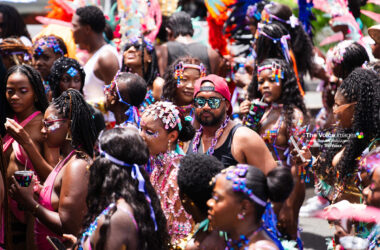JUST as every man has a right to decide his own destiny, so does every country have a right to decide its own foreign policy.
This general principle, based on that policy, is practiced through every country being expected to respect each other’s right to exercise that right – and without partiality.
Over the past two decades, different Saint Lucia governments have observed that general policy of non-interference and non-intervention in the affairs of other states, to which we are bound by treaties and agreements in regional and international organizations, from CARICOM and the OECS to the OAS and the UN.
Ties with our Caribbean neighbours have always been maintained along the same principle of non-intervention. Of late, though, we have departed from strict observance of this principle and opted to comment on the internal affairs of Venezuela, admittedly a close friend.
Saint Lucia has more recently stepped out of line with the CARICOM principle, joining Jamaica and Guyana in the so-called ‘Lima Group’ of mainly South American nations pursuing their own coordinated political vendetta against Venezuela.
One might understand Guyana, which has a century-old border dispute with Venezuela, participating in anti-Venezuela meetings, even though quietly. Jamaica has also been very quiet about its position regarding Venezuela.
Interestingly, neighbouring Trinidad & Tobago, which shares oil wealth and related woes with Venezuela across the Gulf of Paria, is quietly strengthening bilateral ties with Caracas at all levels, even in the face of an influx of fleeing Venezuelans into the twin-island republic.
Saint Lucia is increasingly being seen in two ways: as the only CARICOM country with the testicular fortitude to loudly say as it feels about Venezuela; or conversely, as one of the only CARICOM nations, joining Jamaica and Guyana, ready and willing to throw the regional policy of non-interference and non-intervention out of the window.
If either was true, it would be the result of the exercise of the right of the Saint Lucia government – like any other — to change its foreign policy as it pleases. The same applies to Venezuela as well, where the ruling PSUV has lost only two of the nearly two dozen national elections held in the last two decades. One must observe, however, that there is a substantial body of opinion which challenges the legitimacy of some or all of those elections.
We can choose to declare the exodus of Venezuelans in search of better elsewhere as a (national or regional) security problem. But what about the number of Saint Lucians (and other Caribbean people) still fleeing to Canada, the UK and the USA in search of greener pastures?
What if Venezuela decides to exercise its equal right to criticize Saint Lucia?
As the Prime Minister has rightfully observed, Venezuela has been good to us — and it continues to be. In such a case, wouldn’t it be better if we treated it as we would a friendly neighbor, instead of giving it reason to tell us to mind our own business?
Wouldn’t it be better to talk quietly to Caracas about our concerns, instead of shouting-out our displeasure from the top of Mount Gimie? After all, of what possible benefit is it to St. Lucia to offend, publically, a friend?
Just think about it…













